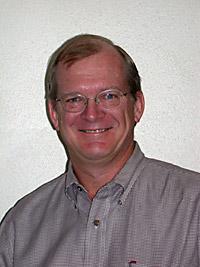The Fish Section of the American Fisheries Society honored a University professor with its highest award simply for doing what he says he loves.
The Society gave Ronald Thune, the LSU School of Veterinary Medicine pathobiological sciences chair, the Stanislas F. Snieszko Distinguished Service Award for his contribution to the growth of fish health.
Snieszko is considered to be the “father of fish health” by professionals in the field for his work that led to fish health becoming a discipline.
Thune said he is honored to receive such a prestigious award and to have been nominated by his peers around the country.
“It makes you feel like you’ve accomplished something,” he said. “It was nice.”
Thune has been involved with the Vet School for 22 years. During that time, his research in the pathogenesis of viral and bacterial infections in fish has led to the prevention of diseases in cultured fish, especially cultured catfish and marine sea bass.
The fishing industry could not maintain economic viability because of low mortality caused by bacterium, Thune said. The multimillion dollar problem affected the industry worldwide, including southern Louisiana.
Thune’s research helped propel economic growth in the fishing industry.
But other than research, Thune said teaching has been one of the greatest joys of his career.
“[Teaching and research] go hand in hand,” he said. “I totally enjoy both. Putting those things together has been wonderful.”
Fish health is not a big field, Thune said. During his career, he has taught approximately 20 students.
“It’s not a field where you run through 20 students at a time,” he said. “But, there are a number of graduate students with successful careers at this time, to be sure.”
Michelle Moore, a post-doctoral fellow with the National Marine Services Center in Seattle, Wash., earned her doctorate degree from the Vet School in 1998 and studied under Thune.
“I was pleasantly surprised when I heard [he got the award],” Moore said. “He deserves it.”
Moore said she already was interested in fish health when she came to the University and feels lucky she joined Thune’s lab.
Moore said Thune is the kind of advisor who lets you make your own mistakes.
“I learned a lot watching him interact with other people,” she said. “He’s very diplomatic and a good scientist.”
Thune is the course coordinator of AQUAMED, a four-week animal pathobiology course during the summer which focuses on understanding the diagnosis and treatment of aquatic animal diseases.
“The thing that distinguishes Dr. Thune is he is at the forefront of the study of the molecular aspects of pathogens and the immune system in fish,” said John Hawke, a pathobiological sciences assistant professor and the chief diagnostician for the LAADDL, which Thune established in the early 80s.
Hawke said food fish did not get a lot of research emphasis in the past. Thune made a push for examining fish disease agents, which has led to two patented vaccines.
Moore said the Snieszko award is a lifetime achievement award indicative of the life of accomplishment Thune has achieved.
‘Father of fish health’ honored
November 14, 2002

‘Father of fish health’ honored



